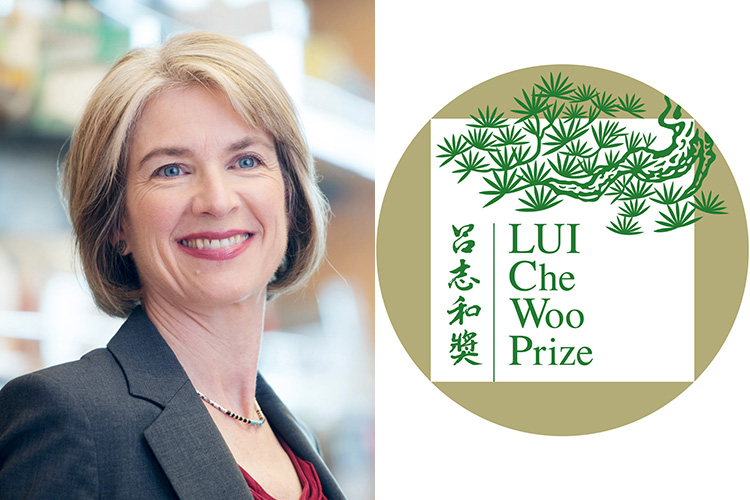Doudna awarded prize for helping build a better, more harmonious world
The 2019 Welfare Betterment Prize comes with a certificate, trophy and more than $2.5 million

August 20, 2019
Structural biologist and biochemist Jennifer Doudna has been honored with the 2019 Welfare Betterment Prize, a relatively new Hong Kong-based prize, for her pioneering discovery of CRISPR-Cas9 gene editing.
“Its potential applications for improving human welfare are vast, and Dr. Doudna’s work has already given hope to millions worldwide,” the board of the Lui Che Woo Prize — Prize for World Civilization said in an announcement.
“I am delighted to accept this honor from the Lui Che Woo Prize recognizing the CRISPR-Cas9 technology,” said Doudna, a UC Berkeley professor of molecular and cell biology and of chemistry and a Howard Hughes Medical Institute investigator. “International accolades such as this can inspire and support scientific advances that better the welfare of people worldwide. On behalf of my students, my colleagues and my collaborators, we appreciate this award and the opportunity to underscore the need for our society to use CRISPR technology responsibly.”
Founded in 2015 by Dr. Lui Che-woo, the international award is given for advancing world civilization and inspiring people to build a more harmonious world. The annual prize recognizes and honors an individual or organization contributing to sustainable development, the betterment of the welfare of humankind and the “promotion of positive life attitude and enhancement of positive energy,” according to the announcement.
Also receiving a Lui Che Woo Prize were The Nature Conservancy, which won the sustainability prize for “nurturing and empowering future environmental leaders,” and Fan Jinshi, who won the positive energy prize. Fan has earned the nickname “Daughter of Dunhuang” for her dedication to studying and preserving the Mogao Grottoes in Dunhuang, China. The grottoes are part of a significant cultural site that houses one of the world’s most important collections of Buddhist culture.
The prizes will be bestowed in a ceremony in Hong Kong on Oct. 3. Each laureate will receive a cash award of HK$20 million — equivalent to approximately 2.56 million U.S. dollars — a certificate and a trophy.
The 2012 invention of CRISPR-Cas9 by Doudna and colleague Emmanuelle Charpentier, then at Umea University in Sweden, provided a faster, cheaper and more accurate tool for editing and manipulating genes. The revolutionary innovation could be the key to treating or preventing inherited genetic disorders, like cystic fibrosis or sickle cell disease, as well as more complex diseases such as cancer, heart disease and HIV. It is already changing the field of agricultural genomics.
The Lui Che Woo Prize is administered and managed by Lui Che Woo Prize Limited, a charitable company incorporated in Hong Kong.